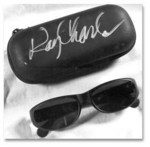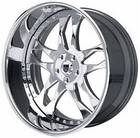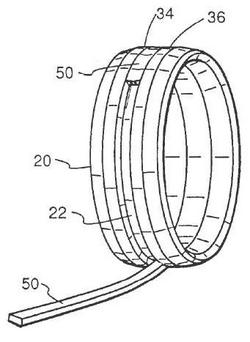Los Angeles, CA – Copyright attorneys for Activision filed a copyright infringement lawsuit at the Federal District Court in Los Angeles to protect its video game copyrights and to stop sales of unauthorized copies. Activision is the copyright owner or licensee of exclusive rights in Call Of Duty 3, which game is the subject of two copyright registrations – one for the Xbox 360 version and one for the Nintendo Wii Version – duly issued by the Register of Copyrights. The complaint alleges that, “among the exclusive rights granted to Plaintiff under the Copyright Act are the exclusive rights to reproduce the Copyrighted Video Games, to make or create derivative works from the Copyrighted Video Games, and to distribute the Copyrighted Video Games to the public.”
 Plaintiff alleges that “Defendant, without the permission or consent of Plaintiff, has copied the Copyrighted Video Games and distributed the Copyrighted Video Games to the public. In doing so, Defendant has violated Plaintiff’s exclusive rights of reproduction and distribution. Defendants’ actions constitute infringement of Plaintiff’s copyrights and exclusive rights under copyright.” Plaintiff believes that Defendant may have sold other copyrighted video games and reserves the right to add additional copyright causes of action after discovery is conducted. Activision requests statutory damages under 17 U.S.C. § 504(c)(1), of not more than $ 30,000.00 and not less than $ 750.00 for each copyrighted work and requests the court order the defendant to pay the costs of the lawsuit and reasonable attorneys’ fees pursuant to 17 U.S.C. § 505. The case is titled Activision Publishing, Inc. v. Guse, CV08-03756 FMS (C.D. Cal. 2008).
Plaintiff alleges that “Defendant, without the permission or consent of Plaintiff, has copied the Copyrighted Video Games and distributed the Copyrighted Video Games to the public. In doing so, Defendant has violated Plaintiff’s exclusive rights of reproduction and distribution. Defendants’ actions constitute infringement of Plaintiff’s copyrights and exclusive rights under copyright.” Plaintiff believes that Defendant may have sold other copyrighted video games and reserves the right to add additional copyright causes of action after discovery is conducted. Activision requests statutory damages under 17 U.S.C. § 504(c)(1), of not more than $ 30,000.00 and not less than $ 750.00 for each copyrighted work and requests the court order the defendant to pay the costs of the lawsuit and reasonable attorneys’ fees pursuant to 17 U.S.C. § 505. The case is titled Activision Publishing, Inc. v. Guse, CV08-03756 FMS (C.D. Cal. 2008).
 Los Angeles Intellectual Property Trademark Attorney Blog
Los Angeles Intellectual Property Trademark Attorney Blog






 Defendant allegedly sells vehicle polishing and cleaning services that are described as “TEFLON® Polishing” and “TEFLON® Shine.” The complaint alleges that Defendant’s products do not contain genuine DuPont TEFLON® fluoropolymer. DuPont allegedly contacted the defendant and asked it to stop use of the mark, but defendant refused, thereby necessitating the lawsuit. The case is titled E.I. Du Pont De Nemours & Co. v. Tropic Shield, Inc., SACV08-00252 CJC (C.D. Cal. 2008).
Defendant allegedly sells vehicle polishing and cleaning services that are described as “TEFLON® Polishing” and “TEFLON® Shine.” The complaint alleges that Defendant’s products do not contain genuine DuPont TEFLON® fluoropolymer. DuPont allegedly contacted the defendant and asked it to stop use of the mark, but defendant refused, thereby necessitating the lawsuit. The case is titled E.I. Du Pont De Nemours & Co. v. Tropic Shield, Inc., SACV08-00252 CJC (C.D. Cal. 2008).
 Defendants own and operate a retail store named Rock Town, and a private investigator – acting on behalf of Plaintiffs – allegedly “purchased an unauthorized t-shirt bearing an image of Tupac Shakur and the trademark ‘Makaveli.'” Plaintiffs sent a cease and desist letter to the Defendants, to which there has been no response. Plaintiffs filed the instant lawsuit seeking monetary damages and injunctive relief. The case is titled Amaru Entertainment, Inc. v. Reza Falatoon, CV08-03317 DSF (C.D. Cal. 2008).
Defendants own and operate a retail store named Rock Town, and a private investigator – acting on behalf of Plaintiffs – allegedly “purchased an unauthorized t-shirt bearing an image of Tupac Shakur and the trademark ‘Makaveli.'” Plaintiffs sent a cease and desist letter to the Defendants, to which there has been no response. Plaintiffs filed the instant lawsuit seeking monetary damages and injunctive relief. The case is titled Amaru Entertainment, Inc. v. Reza Falatoon, CV08-03317 DSF (C.D. Cal. 2008).
